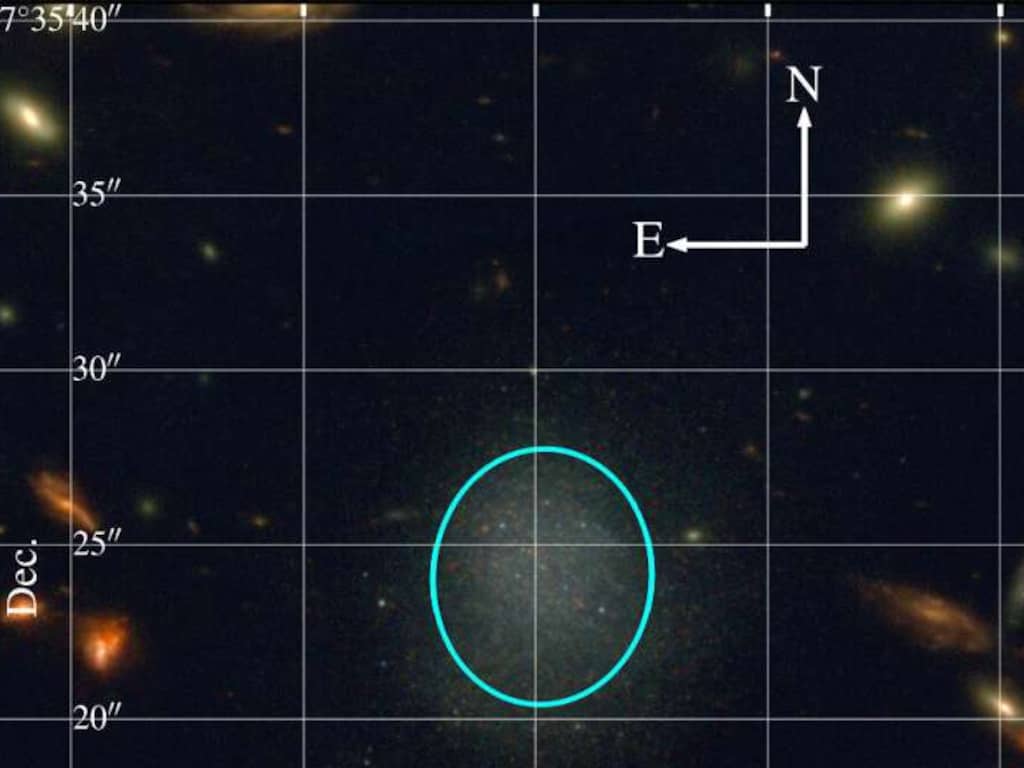A team of astronomers accidentally discovered a galaxy they thought shouldn't exist. The galaxy is so small and isolated that our current knowledge of galaxies cannot explain its existence.
The PEARLSDG galaxy was found by chance when scientists examined images from the James Webb Telescope. They encountered an extremely faint light phenomenon that was initially inexplicable, they write in the latest issue of the journal Astrophysical Journal Letters.
Dwarf galaxies contain relatively few stars, less than 100 million stars. For this reason, they emit little light and are difficult to find with telescopes. For comparison, the Milky Way contains about 200 billion stars.
PEARLSDG is unusually small and faint even for a dwarf galaxy. This indicates that it is indeed an ancient galaxy. It also does not lie close to other galaxies and does not create new stars. Even the smallest galaxies usually do this.
Scientists cannot explain how such a small, quiet and isolated galaxy could exist for so long. “These types of dwarf galaxies do not fit our current knowledge of how galaxies form,” said lead researcher Tim Carlton.
Because PEARLSDG contains few bright stars, astronomers were able to calculate that the system is located about 98 million light-years from Earth.


“Web maven. Infuriatingly humble beer geek. Bacon fanatic. Typical creator. Music expert.”
